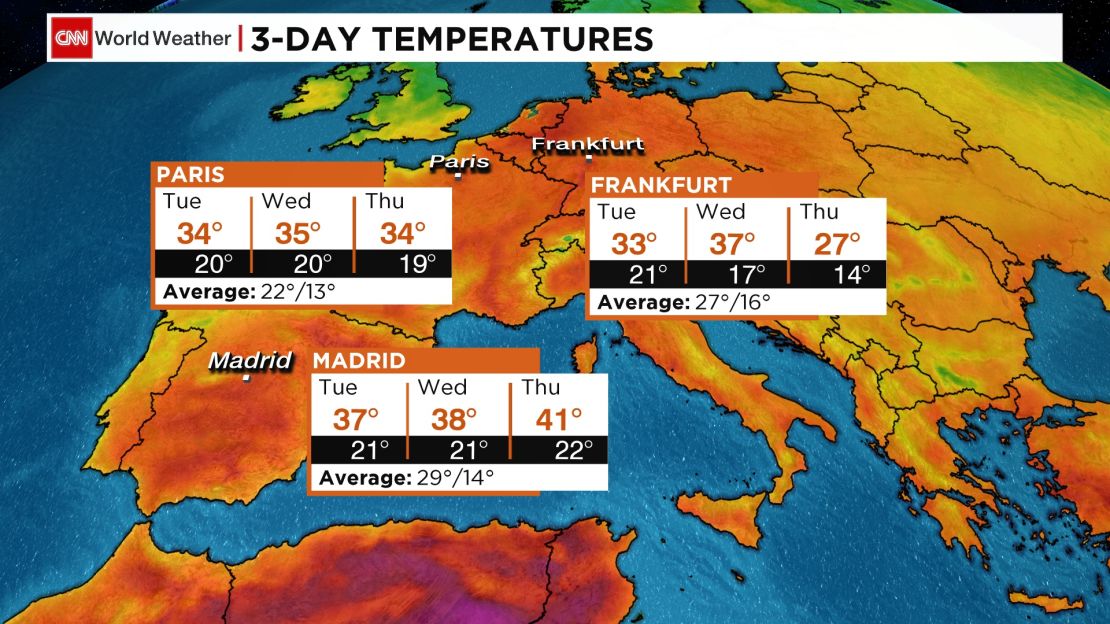Europe is only three days into summer, and Mother Nature is quickly cranking up the heat.
A “potentially dangerous” heat wave is forecast to engulf the continent this week.
With summer 2018’s devastating heat wave and droughts still fresh in the minds of Europeans, many are wondering whether this season will feature more of the same.
Thanks to climate change, these types of heat waves are happening more frequently.
“Heat waves are on the rise,” Stefan Rahmstorf, co-chairman of Earth system analysis at the Potsdam Institute for Climate Impact Research and professor at Potsdam University in Germany, said in a statement.
Rahmstorf related recent heat waves to climate change by comparing them with 500 years of records.
“The hottest summers in Europe since the year 1500 AD all occurred since the last turn of the century: 2018, 2010, 2003, 2016, 2002,” Rahmstorf said.
Global heat records are being set five times as often today as they would in a stable climate, and according to Rahmstorf, what we are seeing is exactly what was predicted by climate scientists as a result of rising global temperatures caused by increases in greenhouse gas emissions from burning coal, oil and gas.
Record temperatures this week
Temperatures are expected to surge nearly 20 degrees Celsius (36 degrees Fahrenheit) above the seasonal average of 22 degrees Celsius (72 Fahrenheit).
French national forecasting service Météo-France is calling for increasing temperatures through the week, with many cities including Paris and Lyon approaching 40 degrees Celsius (104 degrees Fahrenheit) – something that has never occurred in June.
According to Météo-France, this heat wave “promises to be exceptional” for June. Heat waves are common in July and August. “Since 1947, the only June heat wave occurred in 2005. This one looks much more intense, unprecedented in June.”
The frequency of heat wave events such as this one “is expected to double by 2050,” Météo-France said, and without significant cuts to greenhouse gas emissions, they could be stronger and last longer than in the recent past.
Heat wave days in France could increase from five per summer to 25, the statement said.
The heat wave comes ahead of a stalled storm over the Atlantic, which will pump warm air up from Africa and the Mediterranean Sea.

High pressure will also park itself over the region this week, resulting in a dome of sinking air and warming temperatures over Europe.
Heat waves are some of the most direct manifestations of climate change, according to the Intergovernmental Panel on Climate Change, and Europe is certainly not the only place feeling the heat.
Deadly heat waves are going to be a much bigger problem in the coming decades, becoming more frequent and occurring over a much greater portion of the planet because of climate change, according to a study published two summers ago in the journal Nature Climate Change.





